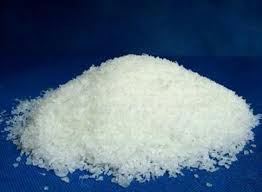El alcohol polivinílico (PVA) es uno de los polímeros solubles en agua más importantes y ampliamente utilizados en aplicaciones industriales. Su proceso de preparación implica la polimerización del acetato de vinilo (VAc) para formar acetato de polivinilo (PVAc). Los grupos acetato de vinilo (-OAc) del PVAc se convierten posteriormente en grupos hidroxilo (-OH) mediante una reacción de alcohólisis (hidrólisis). Según el grado de alcohólisis, el PVA se divide en dos grupos principales: totalmente hidrolizado y parcialmente hidrolizado.

PVA de la serie 99 completamente hidrolizado (como ElephChem PVA 2699, 2499, 2099 y 1799) se refiere a grados con un grado de hidrólisis del 99,0 % molar o superior. Este altísimo grado de hidrólisis es el requisito fundamental para que estos grados de PVA alcancen un alto rendimiento, resistencia y resistencia al agua. Este blog analizará, desde cuatro perspectivas: estructura molecular, diferenciación de grados, ventajas de rendimiento y áreas de aplicación clave, cómo el PVA Serie 99 totalmente hidrolizado se ha convertido en la piedra angular de materiales de alta resistencia, como fibras de alto rendimiento, películas especiales y adhesivos duraderos.
1. La estructura molecular determina el rendimiento: el mecanismo y el efecto de la hidrólisis completa
1.1 Construcción de redes de densidad de hidroxilo y enlaces de hidrógeno
En la serie 99 completamente hidrolizada, casi todos los grupos acetato de vinilo hidrófobos de la cadena molecular son reemplazados por grupos hidroxilo hidrófilos. Los grupos hidroxilo (-OH) son grupos funcionales extremadamente polares que forman fuertes enlaces de hidrógeno intramoleculares e intermoleculares, creando una red tridimensional muy densa y estable.
Esta densa red de enlaces de hidrógeno contribuye a dos efectos moleculares cruciales:
1.2 Correlación lineal entre el grado de polimerización y la viscosidad/resistencia
Suponiendo un grado de hidrólisis constante (HD > 99,0%), las diferencias entre los grados de PVA de la serie 99 completamente hidrolizados se determinan principalmente por el grado de polimerización promedio (GP) o el peso molecular promedio (PM). El GP es un parámetro clave que determina las propiedades reológicas de las soluciones poliméricas y las propiedades mecánicas del producto final.
La escala DP de los grados de la serie ElephChem 99 (basada en el DP promedio):
2. Principales ventajas de rendimiento de la serie PVA 99 totalmente hidrolizada
3. Análisis de las principales aplicaciones industriales del PVA de la serie 99 totalmente hidrolizado
Las propiedades únicas del PVA Serie 99 lo hacen irreemplazable en múltiples sectores de alto valor añadido:
3.1 Fibra de PVA de alto módulo y alta resistencia (fibra de PVA HTHM)
Este es uno de los productos finales más valiosos del PVA Serie 99. Por ejemplo, el grado 1799, con un DP de aproximadamente 1750, logra un alto grado de orientación molecular mediante procesos especializados de hilado, tratamiento térmico y estiramiento.
3.2 Industria textil y papelera
3.3 Precursor de polivinil butiral (PVB)
El PVB es un material fundamental para el vidrio de seguridad automotriz y el vidrio laminado arquitectónico. Como intermediario en la reacción de acetalización, la calidad del PVA determina directamente la claridad óptica, la tenacidad, la adhesión y la resistencia al envejecimiento de la película de PVB final. Grados: 1799 grados especiales (como SX-I/II/III) con un DP ≈ 1700-1850 están diseñados con precisión para garantizar una estructura molecular ideal y una dispersión uniforme durante la posterior reacción de acetalización, cumpliendo así con los estrictos requisitos de calidad óptica del vidrio de seguridad.
3.4 Adhesivos de construcción de alto rendimiento y morteros de mezcla seca
En la industria de la construcción, los PVA de la serie 99 se utilizan como aditivos de alto rendimiento para mejorar la durabilidad y la adhesión del material.
4. Conclusión: Perspectivas futuras para el PVA de la serie 99 totalmente hidrolizado
Los PVA de la serie 99 son una rama clásica y prometedora de la ciencia de los materiales poliméricos. Mediante el control preciso del grado de hidrólisis y polimerización, como lo demuestra el sistema de grados de ElephChem, la industria puede desarrollar grados especializados adaptados a las demandas de aplicaciones diversas y exigentes.
Desde fibras de alta resistencia que refuerzan la infraestructura moderna hasta películas de intercapa de PVB que garantizan la seguridad, pasando por recubrimientos ecológicos de alto rendimiento que mejoran la calidad de vida, el PVA serie 99, con su resistencia, estabilidad y resistencia al agua inigualables, sigue desempeñando un papel clave como impulsor de materiales de alto rendimiento y de alta resistencia en la modernización y el desarrollo sostenible de la industria manufacturera global. A medida que nuevos usos, como la impresión 3D y los hidrogeles médicos, exigen un mejor PVA, es probable que aumenten los estudios para mejorarlo y modificarlo. Esto probablemente ampliará su valor en la industria y su potencial de mercado.
Sitio web: www.elephchem.com
WhatsApp: (+)86 13851435272
Correo electrónico: admin@elephchem.com